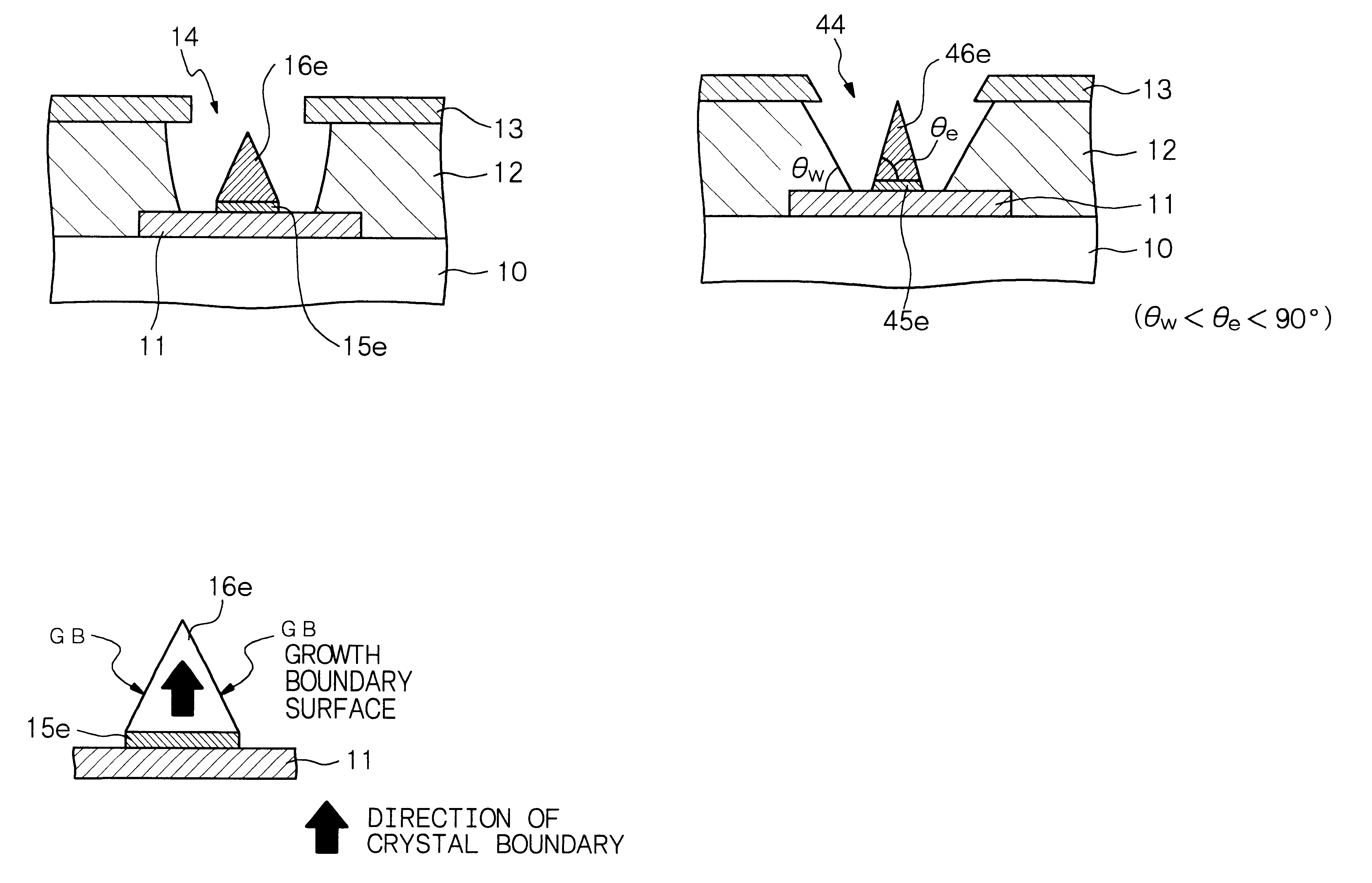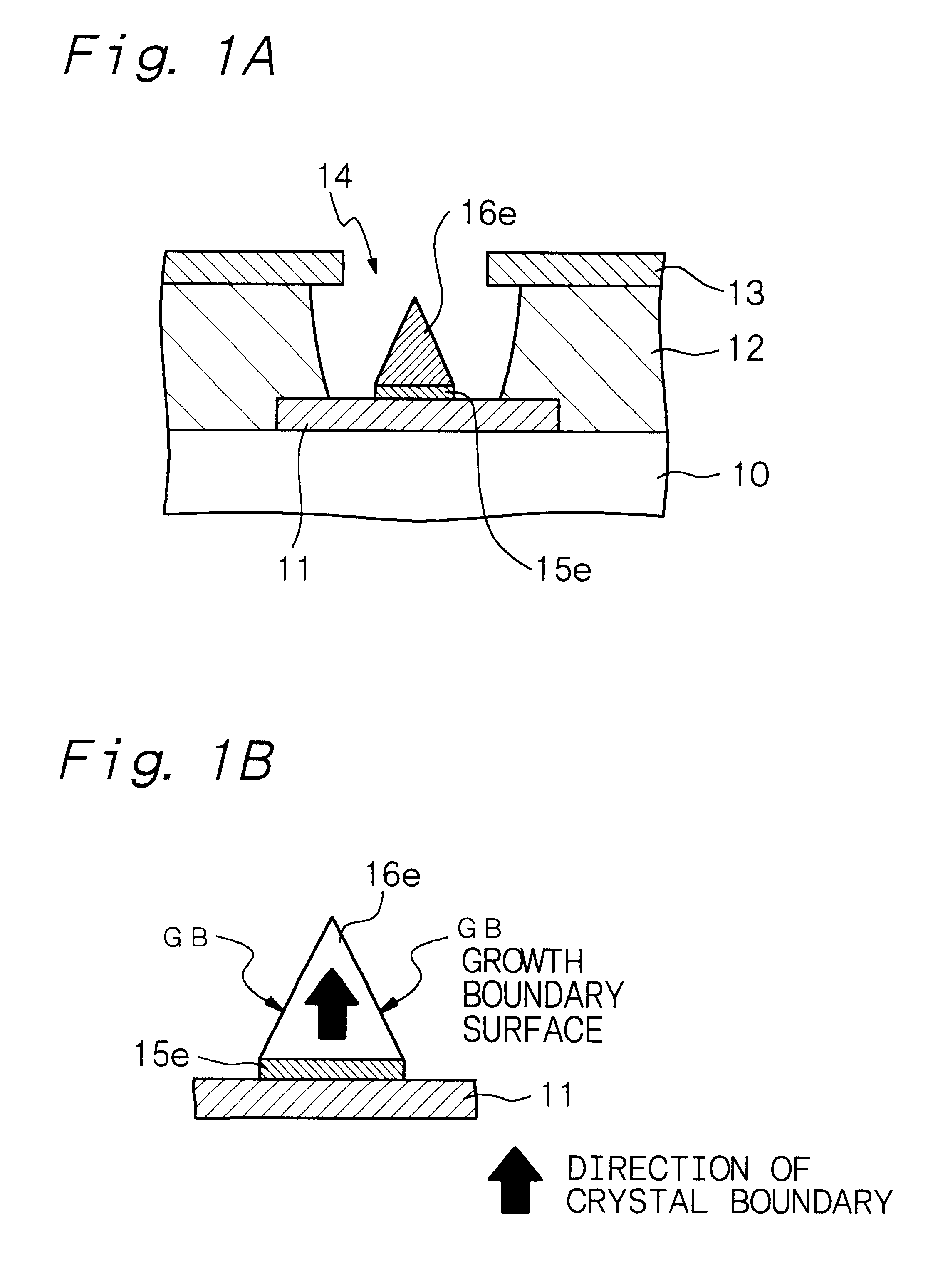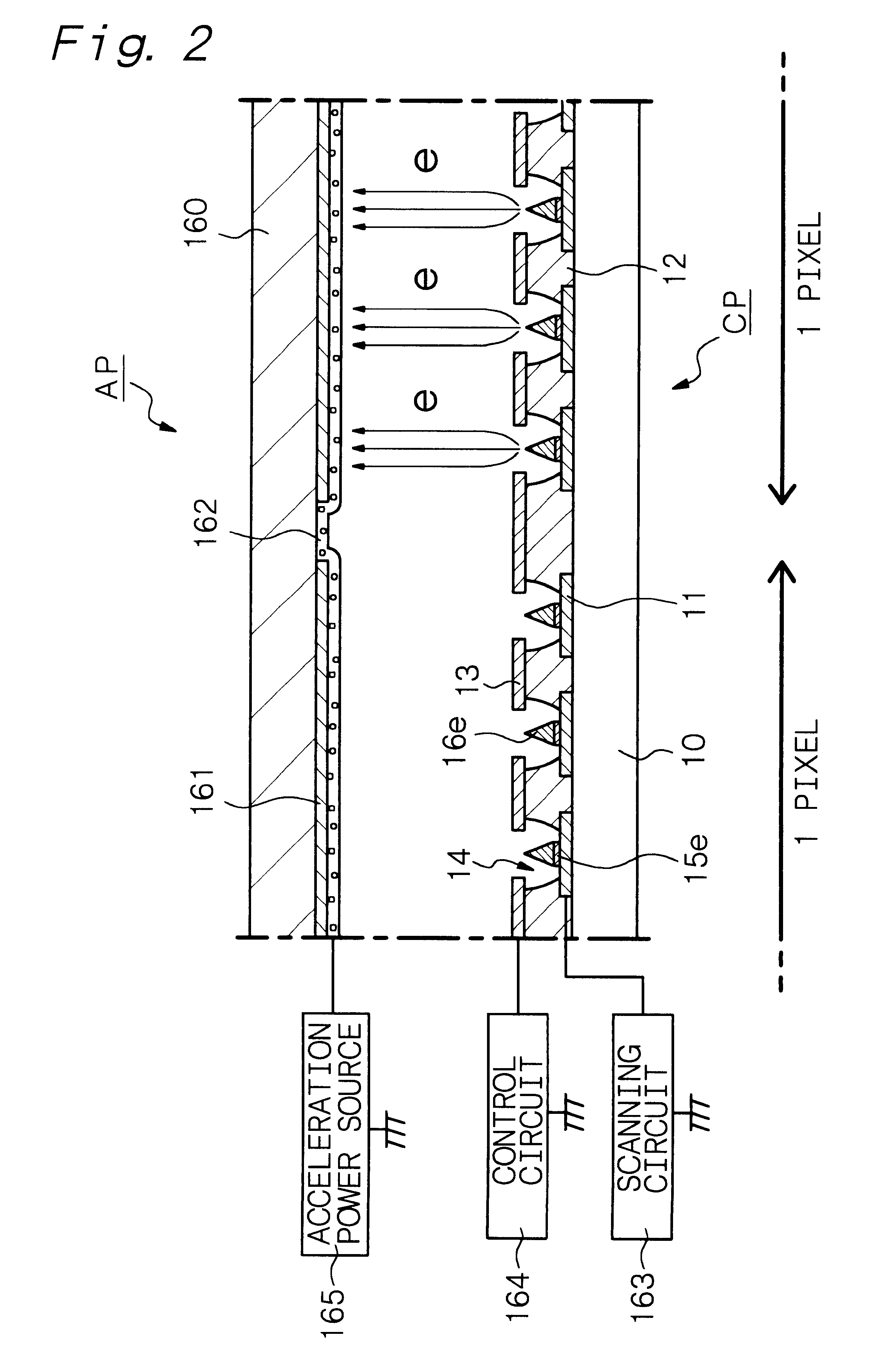Cold cathode field emission device and display
a cold cathode field and emission device technology, applied in the manufacture of electrode systems, discharge tubes/lamps, discharge tubes luminescent screens, etc., can solve the problems of large deposition apparatus, difficult to improve a throughput, and non-uniform image display characteristic of display, etc., to achieve uniform and excellent electron emission characteristics
- Summary
- Abstract
- Description
- Claims
- Application Information
AI Technical Summary
Benefits of technology
Problems solved by technology
Method used
Image
Examples
example 1
is directed to a field emission device according to the first aspect of the present invention, a display having such field emission devices according to the first aspect of the present invention and a process for the production of a field emission device according to the first-A aspect of the present invention. FIG. 1A shows a schematic partial end view of the field emission device of Example 1, and particularly, FIG. 1B schematically shows an electron emitting portion and members in its vicinity. FIG. 2 shows a schematic partial end view of the display, and further, FIGS. 3A, 3B, 4A, 4B, 5A, 5B, 6A, 6B, 7A, 7B and 7C show the process for the production of the field emission device.
The field emission device comprises a support 10 formed, for example, of a glass substrate, a cathode electrode 11 composed of chromium (Cr), an insulating layer 12 composed of SiO.sub.2, a gate electrode 13 composed of chromium and a conical electron emitting portion 16e formed of a tungsten (W) layer. T...
example 2
Example 2 is directed to the process for the production of a field emission device according to the first-B aspect of the present invention. FIGS. 8A, 8B, 9A, 9B, 10A, 10B, 11A and 11B show the production process of Example 2. Those portions which are the same as those in FIGS. 1A and 1B are shown by the same reference numerals, and detailed explanations thereof are omitted.
[Step-200]
First, the cathode electrode 11 is formed on the support 10. The cathode electrode 11 is formed by subsequently forming a TiN layer (thickness 0.1 .mu.m), a Ti layer (thickness 5 nm), an Al--Cu layer (thickness 0.4 .mu.m), a Ti layer (thickness 5 nm), a TiN layer (thickness 0.02 .mu.m and a Ti layer (thickness 0.02 .mu.m) in this order by a DC sputtering method, for example, according to a sputtering condition shown in the following Table 10 to form laminated layers and patterning the laminated layers. In the drawings, the cathode electrode 11 is shown as a single layer. Then, the insulating layer 12 is...
example 3
Example 3 is directed to the process for the production of a field emission device according to the first-C aspect of the present invention. The production process of Example 3 will be explained with reference to FIGS. 12A, 12B and 13. Those portions which are the same as those in FIGS. 8A, 8B, 9A, 9B, 10A and 10B are shown by the same reference numerals, and detailed explanations thereof are omitted.
[Step-300]
Procedures up to the formation of the mask material layer 27 are carried out in the same manner as in [Step-200] to [Step-220] in Example 2. Then, the mask material layer 27 only on the conductive material layer 26 and in the widened portion 26C is removed to leave the mask material layer 27 in the columnar portion 26B as shown in FIG. 12A. In this case, wet etching using a diluted hydrofluoric acid aqueous solution is carried out, whereby only the mask material layer 27 composed of copper can be selectively removed without removing the conductive material layer 26 composed of...
PUM
 Login to View More
Login to View More Abstract
Description
Claims
Application Information
 Login to View More
Login to View More - R&D
- Intellectual Property
- Life Sciences
- Materials
- Tech Scout
- Unparalleled Data Quality
- Higher Quality Content
- 60% Fewer Hallucinations
Browse by: Latest US Patents, China's latest patents, Technical Efficacy Thesaurus, Application Domain, Technology Topic, Popular Technical Reports.
© 2025 PatSnap. All rights reserved.Legal|Privacy policy|Modern Slavery Act Transparency Statement|Sitemap|About US| Contact US: help@patsnap.com



